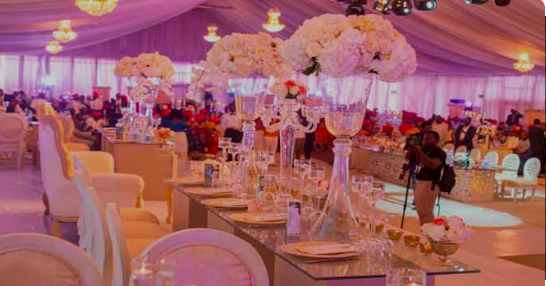
Event planning is a vibrant and dynamic industry that plays a pivotal role in orchestrating memorable experiences across various occasions. In Nigeria, the event planning sector has witnessed significant growth, fueled by a diverse range of cultural celebrations, corporate gatherings, and social events. This comprehensive exploration delves into the multifaceted world of event planning jobs in Nigeria, covering the scope of the industry, the role of event planners, challenges faced, educational pathways, and the impact of cultural diversity on the profession.
The Expansive Scope of Event Planning in Nigeria
1 Diverse Occasions and Celebrations
Nigeria, with its rich cultural tapestry, hosts a myriad of events and celebrations throughout the year. These include weddings, birthdays, corporate conferences, religious ceremonies, cultural festivals, and government functions. Event planners in Nigeria are entrusted with the task of bringing these diverse occasions to life.
2 Cultural and Traditional Ceremonies
Cultural and traditional ceremonies hold immense significance in Nigeria. Events such as traditional weddings, naming ceremonies, and rites of passage are deeply rooted in cultural practices. Event planners must navigate the intricacies of different ethnic traditions to create authentic and meaningful experiences.
3 Corporate Events and Conferences
The corporate sector in Nigeria relies on skilled event planners to organize conferences, product launches, seminars, and team-building events. Corporate event planning requires a meticulous approach to detail, logistics, and branding to ensure the success of these professional gatherings.
4 Social Events and Entertainment
Nigeria’s vibrant entertainment industry contributes to a lively social scene. Event planners play a crucial role in organizing music concerts, fashion shows, movie premieres, and other entertainment events that showcase the country’s artistic talent.
The Role of Event Planners in Nigeria
1 Conceptualization and Design
Event planners are tasked with conceptualizing and designing events that align with the client’s vision and objectives. This involves creativity, attention to detail, and a deep understanding of the client’s preferences and cultural nuances.
2 Budgeting and Financial Management
Effective budgeting is a cornerstone of successful event planning. Planners in Nigeria must navigate financial constraints while delivering high-quality events. This involves negotiating with vendors, optimizing resources, and ensuring cost-effectiveness without compromising on quality.
3 Venue Selection and Logistics
Choosing the right venue is pivotal in creating the desired atmosphere for an event. Event planners in Nigeria must navigate diverse landscapes, from luxurious banquet halls to open-air spaces, and manage logistics such as transportation, accommodation, and technical requirements.
4 Vendor Coordination and Management
Collaboration with various vendors, including caterers, decorators, photographers, and entertainers, is a key responsibility for event planners. Effective vendor management ensures seamless coordination and execution of different elements within the event.
5 Cultural Sensitivity and Customization
Nigeria’s cultural diversity demands a high level of cultural sensitivity from event planners. Understanding and respecting cultural nuances are essential for creating events that resonate with clients and participants from different backgrounds.
Challenges Faced by Event Planners in Nigeria
1 Weather and Outdoor Events
Nigeria’s climate can present challenges, especially for outdoor events. Event planners must consider seasonal variations, potential rainfall, and temperature fluctuations when organizing open-air gatherings.
2 Infrastructure Limitations
In some regions, limited infrastructure can pose challenges for event planners. Access to reliable electricity, quality sound systems, and modern venues may vary, requiring planners to find innovative solutions to overcome these limitations.
3 Political and Security Concerns
Political and security considerations can impact event planning in Nigeria. Planners must stay informed about potential disruptions, plan for security measures, and be adaptable in the face of unexpected developments.
4 Client Expectations and Cultural Variations
Meeting client expectations while navigating cultural variations can be complex. Event planners must strike a balance between delivering a unique experience and respecting cultural sensitivities, which may vary among clients and participants.
5 Talent Acquisition and Training
The event planning industry in Nigeria is evolving, and there is a demand for skilled professionals. Acquiring and retaining talented individuals, along with providing ongoing training to keep up with industry trends, can be challenging for event planning firms.
Educational Pathways and Training
1 Event Management Courses and Certifications
Individuals aspiring to enter the field of event planning in Nigeria can pursue courses and certifications in event management. These programs cover topics such as event design, budgeting, marketing, and logistics, providing a foundational understanding of the industry.
2 Hospitality and Tourism Management
Degrees or certifications in hospitality and tourism management can also serve as a valuable educational pathway for event planners. These programs offer a broader perspective on the hospitality industry, which is closely intertwined with event planning.
3 On-the-Job Training and Internships
Practical, on-the-job training and internships are invaluable for aspiring event planners. This hands-on experience allows individuals to apply theoretical knowledge in real-world scenarios, develop problem-solving skills, and build a network within the industry.
4 Continuous Professional Development
The dynamic nature of the event planning industry necessitates continuous professional development. Event planners in Nigeria can attend workshops, conferences, and industry events to stay updated on trends, technologies, and best practices.
Cultural Diversity and Its Impact on Event Planning
1 Embracing Cultural Richness
Nigeria’s cultural diversity is a source of richness in event planning. Planners have the opportunity to incorporate diverse cultural elements, traditions, and aesthetics into events, creating a tapestry of experiences that resonate with participants.
2 Multilingual Communication
Multilingual communication is often required in Nigeria, where multiple languages are spoken across different regions. Event planners must navigate language barriers effectively to ensure clear communication with clients, vendors, and participants.
3 Understanding Cultural Preferences
Understanding and respecting cultural preferences are crucial for successful event planning. From cuisine choices to entertainment preferences, event planners must tailor their offerings to align with the cultural preferences of the diverse communities they serve.
4 Fostering Inclusivity
Inclusivity is a key consideration in event planning. Planners in Nigeria must create events that are inclusive and welcoming to participants from different cultural, religious, and socio-economic backgrounds.
5 Navigating Religious Observances
Religious observances play a significant role in Nigeria, and event planners must be mindful of religious calendars and practices. This includes scheduling events around religious holidays and accommodating specific requirements related to dietary restrictions or prayer times.
The Impact of Technology on Event Planning in Nigeria
1 Digital Marketing and Promotion
The use of digital marketing and social media has revolutionized event promotion in Nigeria. Event planners leverage online platforms to reach a wider audience, create buzz, and generate interest in upcoming events.
2 Virtual and Hybrid Events
The advent of virtual and hybrid events has become particularly relevant in the wake of global events. Event planners in Nigeria have embraced digital platforms to host virtual conferences, webinars, and hybrid events that cater to both in-person and remote participants.
3 Event Management Software
Event management software simplifies the planning process by providing tools for budgeting, registration, guest management, and logistics. The adoption of such software enhances the efficiency and organization of event planning in Nigeria.
4 Live Streaming and Video Production
Live streaming and high-quality video production have become integral to event planning. Planners incorporate these technologies to enhance the virtual experience for remote participants and capture memorable moments during live events.
5 Online Ticketing and Registration
The convenience of online ticketing and registration systems has transformed the attendee experience. Event planners utilize these platforms to streamline the registration process, manage ticket sales, and gather valuable data for future events.
Conclusion
In conclusion, event planning in Nigeria is a dynamic and multifaceted industry that thrives on cultural diversity, creativity, and adaptability. Event planners play a crucial role in bringing diverse occasions to life, from traditional ceremonies to corporate events and entertainment gatherings. Despite facing challenges such as weather uncertainties, infrastructure limitations, and cultural variations, event planners in Nigeria navigate these complexities with resilience and innovation.
Education and training pathways, coupled with continuous professional development, contribute to the growth of skilled event planners in the country. The impact of cultural diversity, coupled with the integration of technology, shapes the landscape of event planning, creating unique and memorable experiences for participants.
As Nigeria continues to evolve, so does the field of event planning, offering a promising and exciting future for professionals who are passionate about creating unforgettable moments and contributing to the cultural tapestry of the nation.







